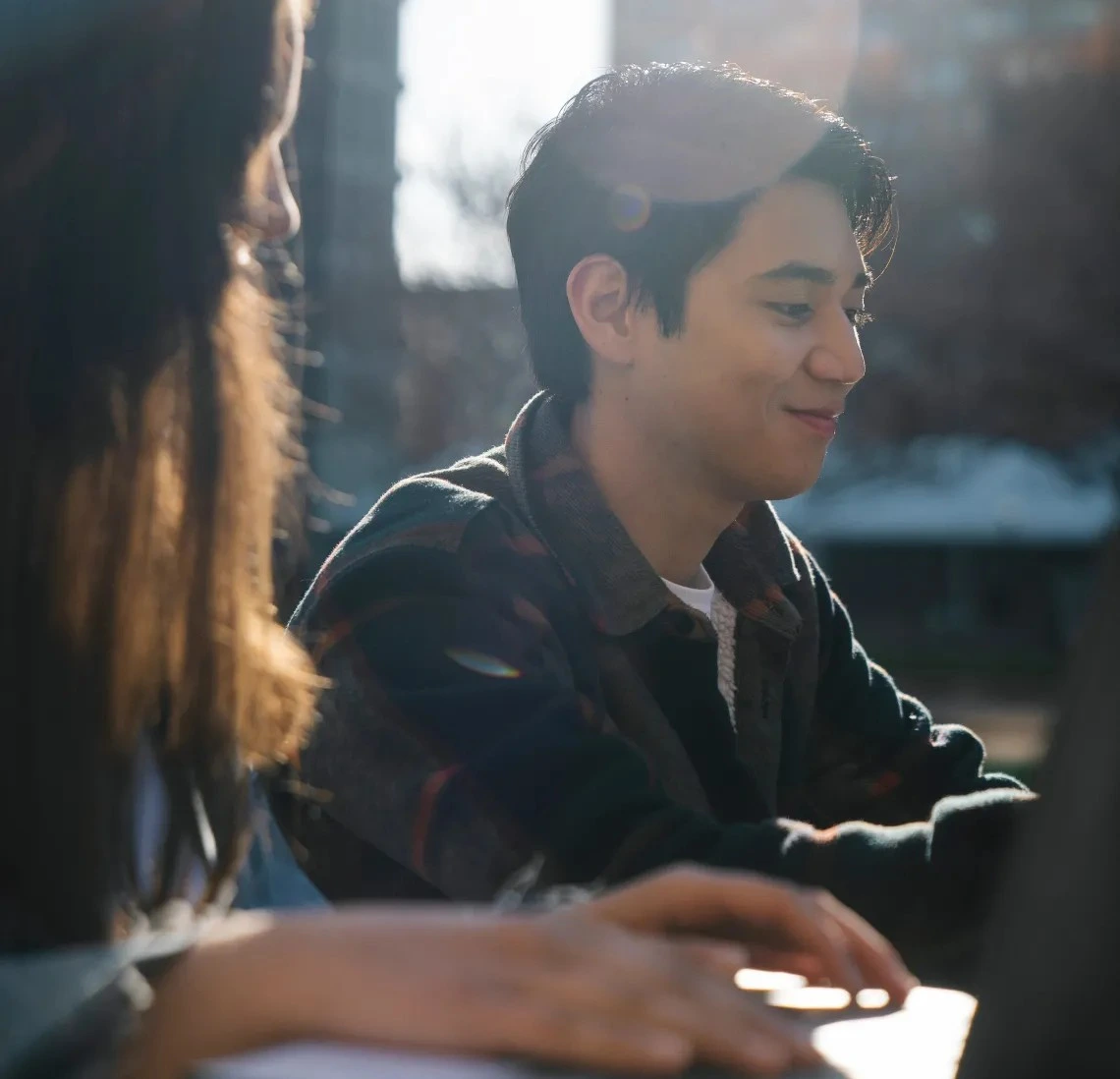Support Through Student Connection
Get support, refresh your coping skills, and figure out your next steps.

Talking About It Helps
From school and finances to relationships and what the future holds (and plenty more in between), there's a lot on your plate. CAPS peer counselors are U of A students who are hand-picked and trained to talk with you about whatever's going on. Peer counseling is a brief intervention to help you identify coping skills and your next steps.
Here are a few examples of what peer counselors can help with:
- academic stress and burnout
- adjustment
- alcohol or other drug concerns
- anxiety
- depression
- financial stress
- grief and loss
- homesickness
- roommate, friend, relationship, or family concerns
Schedule a 1:1 Meeting with a Peer Counselor
You can sign up for peer counselor or request more information about services for a friend by completing our Peer Counseling sign-up form. You'll provide a name and contact information and brief information about your concerns. You can also view our peer counselor profiles to choose the right peer counselor for you.
Call the Peer2Peer Evening & Weekend Warm Line
Peer2Peer offers non-emergency evening and weekend phone support for students. Staffed by trained peer counselors, the Peer2Peer warm line is a confidential, judgment-free space for check-ins, conversation, and connection.
Call Peer2Peer at 520-621-0216 Mon-Thurs 6-10 pm, Fri-Sun 8 pm-12 am
Learn More
What Happens with a Peer Counselor
Peer counselors offer free 15 to 30-minute one-on-one sessions with U of A students. During your meeting with the peer counselor, you'll set a goal for your time, talk about what's going on, and collaborate in planning your next steps. Your peer counselor can help you identify coping skills, help you problem-solve, and recommend campus resources that could be a good fit. Your peer counselor can also talk with you about professional counseling options.
Peer counseling is a safe, confidential, and supportive space. Please note that peer counseling is not intended for mental health crises or safety concerns. If your peer counselor is concerned about your safety or the safety of someone else, they will need to consult with professional staff at CAPS and may connect you with professional mental health support.
More Helpful Mental Health Resources
Togetherall Online Community
Connect with real people who get it in an anonymous mental health and wellness community.
Give Yourself a Mental Health Check-Up
Schedule a CAPS Counseling & Consultation visit online or by phone.
Resource & Referral Support
CAPS care coordinators can help get you connected with resources that fit you best.
Discover More Campus, Community, and Online Resources
Peer Counseling FAQ's
Peer Counseling is a peer-to-peer program at the University of Arizona that offers one-on-one Psychological First Aid (PFA) to students in a confidential and safe environment. This is not psychological treatment but rather a brief, supportive intervention to help students connect and share tools to cope with stress. Peer Counseling was developed at U of A in consultation with Dr. George Everly, faculty at the Johns Hopkins School of Medicine and Public Health.
Psychological First Aid (PFA) is an evidence-informed support designed to strengthen one’s healthy coping practices, mitigate distress and facilitate access to continued care, if needed.
No. Psychological first aid is just that – first aid. It is not considered a psychological treatment. Consider the physical health intervention model – as helpful community members we learn physical first aid to help respond, support and facilitate care, as needed, to another community member who may be physically hurt. It is not a regulated practice but rather a set of skills that one learns to best assist another member of the community. Similarly, psychological first aid offers skills to best support other community members during times of stress and facilitates referrals to additional levels of care, if needed.
If you need support from a licensed mental health provider, get started with CAPS.
Peer counseling and peer-led groups are meant to provide a safe space for you to share and gain support. Personal disclosures are considered to be confidential although peer counselors will seek guidance from professional health and wellness staff on how best to support students who may be in danger of self-harm or harm to others to access appropriate levels of care beyond psychological first aid.
Peer counseling offers a number of antidotes to help promote resilience and help you deal with the stress in your life. First, it’s a space to connect. Social connection is the most powerful antidote for resilience. We are in this together and peer counseling gives you the opportunity to connect with peers dealing with similar stressors. Second, our peer counselors are trained to offer specific ideas of support and ways to cope with stress that have been shown to help reduce the impact of stress and facilitate resilience.
Peer counseling is intended to be short-term. While there is no limit on the number of peer counseling sessions you can have, your peer counselor may recommend additional mental health and wellness services if they feel you could benefit from additional support.
Peer counselors were selected after submitting applications of interest and participating in group and individual interviews. Peer counselors demonstrated an interest in serving our community, and illustrated active listening skills, coachability, a commitment to self-care, and cultural awareness and competency.
Peer counselors earned certificates in Psychological First Aid by completing a fully asynchronous, professional online learning course led by Dr. George Everly, author of the Johns Hopkins Guide to Psychological First Aid and international expert in crisis intervention. Additionally, peer counselors complete a 5-hour training led by Counseling and Psych Services (CAPS) professional staff and attend monthly trainings during the academic year.
Peer counselors are provided oversite, mentoring, and support by CAPS staff.

